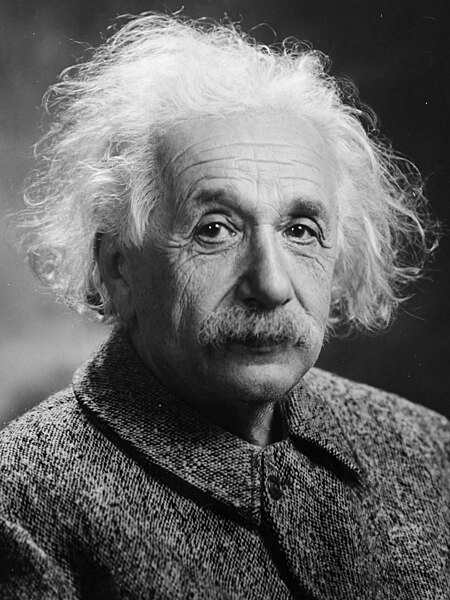Leading Like Einstein: Insights on Creativity, Learning, and Collaboration

Leadership Lessons from Albert Einstein: Insights from a Scientific Genius
Albert Einstein is widely known as one of the most brilliant scientific minds of the modern era, but his impact on the world extends far beyond the field of physics. Throughout his life, Einstein demonstrated many of the key qualities that define effective leaders, and his approach to problem-solving, teamwork, and ethical responsibility remains a model for modern leaders.
One of Einstein’s most notable leadership qualities was his ability to think creatively and outside the box. From a young age, Einstein was fascinated by the mysteries of the universe, and he spent countless hours pondering the fundamental questions of physics. However, he quickly became dissatisfied with the conventional wisdom of his time, which he felt was too limited in scope and failed to capture the true complexity of the world. In response, Einstein developed his own innovative approach to problem-solving that would eventually lead to his development of the theory of relativity.
Einstein’s approach to problem-solving was characterized by his willingness to challenge long-held assumptions and explore new possibilities. Instead of relying on established theories and formulae, Einstein used his imagination and intuition to develop new ideas and hypotheses. This approach often required him to take risks and embrace uncertainty, as he sought to push the boundaries of what was possible.
The value of creative thinking in leadership cannot be overstated. In today’s fast-paced and rapidly changing business environment, leaders must be able to think creatively and adapt to new challenges in order to succeed. By following Einstein’s example, modern leaders can learn to approach problems with an open mind, challenge their assumptions, and find new solutions that may have been overlooked by others.
One of the keys to Einstein’s success as a creative thinker was his dedication to continuous learning and improvement. Throughout his life, Einstein remained deeply curious about the world around him, and he sought to expand his knowledge and understanding in every way possible. He devoured books and scientific papers, attended lectures and seminars, and engaged in lively debates with his colleagues and peers. Even as he became famous for his groundbreaking discoveries, he remained humble and always eager to learn more.
Einstein’s commitment to lifelong learning and improvement is a valuable lesson for modern leaders. In order to remain effective and relevant in today’s fast-changing business environment, leaders must be willing to constantly challenge themselves and seek out new knowledge and experiences. This means staying up-to-date with the latest trends and technologies, engaging with experts and thought leaders in their field, and seeking out opportunities for personal and professional growth.
In addition to his creativity and dedication to learning, Einstein was also known for his humility and willingness to collaborate. Despite his reputation as a brilliant scientist, Einstein recognized that no one person has all the answers. He was always willing to listen to the ideas of others, regardless of their background or experience, and he often collaborated with colleagues and peers to tackle complex scientific problems.
This approach to teamwork and collaboration is particularly important in today’s business environment, where teams are often distributed across different geographies and cultures. By embracing humility and a collaborative mindset, leaders can build stronger, more effective teams that are better equipped to tackle the challenges of the 21st century.
Einstein’s life and work offer many valuable lessons for modern leaders. By embracing creativity, lifelong learning, collaboration, and ethical responsibility, leaders can follow in Einstein’s footsteps and create positive change in their organizations and communities. Whether leading a team of scientists or managing a business, the principles of effective leadership are universal, and the example set by Einstein provides a valuable guide for those seeking to make a difference in the world.
Einstein’s ability to think creatively and outside the box
Einstein’s ability to think creatively and outside the box is one of his most remarkable leadership qualities, and it is exemplified by his development of the theory of relativity. At the time, the prevailing scientific view was that space and time were absolute and unchanging. However, Einstein questioned this assumption and proposed that space and time were relative to the observer and could be distorted by gravity. This was a revolutionary idea that challenged the entire field of physics and laid the foundation for many new discoveries.
Einstein’s approach to problem-solving was characterized by his willingness to question the status quo and imagine new possibilities. He was not content to accept existing theories and ideas at face value, but instead sought to explore new frontiers and push the boundaries of what was possible. This approach required a deep understanding of the fundamental principles of physics, as well as a highly developed imagination and intuition.
The importance of creative thinking in leadership cannot be overstated. In today’s fast-paced and competitive business environment, leaders must be able to think creatively in order to stay ahead of the curve and remain relevant. The ability to question existing assumptions, imagine new possibilities, and take calculated risks is essential for success in any field. By following Einstein’s example, modern leaders can learn to approach problems with an open mind, challenge their assumptions, and find new solutions that may have been overlooked by others.
Einstein’s example is particularly relevant in today’s technology-driven economy, where new ideas and approaches are constantly being developed. Creative thinking is essential for innovation and growth, and leaders who can cultivate this quality in themselves and their teams are more likely to succeed. The ability to think creatively also enables leaders to anticipate and adapt to changes in the market and the wider world, which is critical in today’s rapidly evolving business landscape.
In addition to inspiring creative thinking, Einstein’s approach to problem-solving also provides a model for effective leadership. His willingness to challenge the status quo and imagine new possibilities is a testament to the power of visionary leadership. By setting bold goals and encouraging their teams to think outside the box, leaders can inspire their organizations to achieve great things and create positive change in the world.
Einstein’s ability to think creatively and outside the box is a valuable lesson for modern leaders. By following his example and embracing new ideas and approaches, leaders can drive innovation and growth in their organizations, inspire their teams to achieve great things, and create positive change in the world. Whether leading a team of scientists or managing a business, the principles of creative thinking and visionary leadership are universal, and the example set by Einstein provides a valuable guide for those seeking to make a difference in the world.
Einstein’s dedication to continuous learning and improvement
Einstein’s dedication to continuous learning and improvement is another key leadership quality that set him apart from his peers. From a young age, Einstein was deeply curious about the world and the mysteries of the universe. He was always asking questions, reading books, and engaging with the latest scientific discoveries. This commitment to lifelong learning stayed with him throughout his life and fueled his remarkable career as a physicist and public intellectual.
Einstein’s pursuit of knowledge was not just limited to his field of physics. He was interested in a wide range of subjects, including philosophy, politics, and the arts. He believed that a broad knowledge base was essential for developing a deep understanding of the world and for making meaningful contributions to society. His intellectual curiosity and multidisciplinary approach to learning enabled him to make groundbreaking discoveries in physics and to develop a unique perspective on the world.
The value of intellectual curiosity and a growth mindset in leadership cannot be overstated. In today’s rapidly changing business environment, leaders must be willing to continually learn and adapt in order to remain relevant and effective. This means seeking out new knowledge and experiences, engaging with experts and thought leaders in their field, and staying up-to-date with the latest trends and technologies.
By embracing a growth mindset and committing to lifelong learning, leaders can develop a deeper understanding of their industry, their customers, and the world at large. This enables them to make more informed decisions, take calculated risks, and identify new opportunities for growth and innovation. Additionally, leaders who model the importance of continuous learning and improvement set a powerful example for their teams, inspiring them to develop their own knowledge and skills and to strive for excellence in all that they do.
Einstein’s approach to learning also highlights the importance of being open-minded and willing to explore new ideas and perspectives. As a leader, it is essential to be receptive to feedback and to be willing to listen to the ideas of others, even if they conflict with your own. By staying open to new ideas and experiences, leaders can develop a more nuanced understanding of the world and avoid getting stuck in rigid ways of thinking.
Einstein’s dedication to continuous learning and improvement provides an important model for modern leaders. By embracing intellectual curiosity and a growth mindset, leaders can develop a deeper understanding of their industry, their customers, and the world at large. This enables them to make more informed decisions, take calculated risks, and identify new opportunities for growth and innovation. Additionally, by modeling the importance of lifelong learning and a willingness to explore new ideas, leaders can inspire their teams to develop their own knowledge and skills and to strive for excellence in all that they do.
Einstein’s humility and willingness to collaborate
Einstein’s humility and willingness to collaborate with others is another key leadership quality that set him apart from his peers. Despite his reputation as a brilliant scientist, Einstein recognized that no one person has all the answers. He was always willing to listen to the ideas of others, regardless of their background or experience, and he often collaborated with colleagues and peers to tackle complex scientific problems.
Einstein’s approach to teamwork and collaboration was characterized by a deep respect for the contributions of others. He believed that every person had something valuable to offer, and he sought to create an environment where everyone felt valued and respected. This approach enabled him to build strong, effective teams that were better equipped to tackle complex problems and to make groundbreaking discoveries.
The benefits of humility and collaboration in leadership cannot be overstated. In today’s complex and interconnected world, leaders must be able to work effectively with others in order to achieve their goals. This requires a willingness to listen to and learn from others, to value diverse perspectives and experiences, and to create an environment where everyone feels respected and empowered.
By following Einstein’s example, modern leaders can learn to build strong, effective teams that are better equipped to tackle the challenges of the 21st century. This means setting aside ego and being willing to listen to and learn from others, even when their ideas conflict with our own. It also means valuing diversity and creating an inclusive culture that enables everyone to contribute their best work.
Einstein’s approach to collaboration is particularly relevant in today’s technology-driven economy, where innovation often requires the contributions of multiple experts across different fields. By building diverse teams and creating an environment that values collaboration and open communication, leaders can create a culture of innovation and creativity that drives growth and success.
In addition to driving innovation and growth, humility and collaboration also have a positive impact on employee engagement and morale. When employees feel valued and respected, they are more likely to be motivated and committed to their work. By creating an environment of collaboration and mutual respect, leaders can inspire their teams to do their best work and to take pride in their accomplishments.
Einstein’s humility and willingness to collaborate provides an important model for modern leaders. By valuing diverse perspectives, building strong, effective teams, and creating an environment of collaboration and mutual respect, leaders can drive innovation, growth, and success in their organizations. By setting aside ego and embracing a collaborative mindset, leaders can create a culture of creativity, innovation, and excellence that enables their teams to achieve great things.
Einstein’s commitment to social justice and equality
Einstein’s commitment to social justice and equality is another aspect of his leadership that set him apart from his peers. Throughout his life, Einstein was deeply committed to advocating for causes that he believed would make the world a better place. He was an outspoken critic of racism, fascism, and war, and he used his platform as a renowned scientist to speak out on these issues and to advocate for change.
One of Einstein’s most notable contributions to social justice was his activism on issues such as civil rights and nuclear disarmament. He was a vocal supporter of the civil rights movement in the United States, and he worked closely with civil rights leaders such as W.E.B. Du Bois and Paul Robeson to promote racial equality. He also used his influence to advocate for nuclear disarmament and to promote peaceful solutions to international conflicts.
Einstein’s activism on these issues demonstrated the power of ethical leadership in creating a better world. By speaking out on issues that were important to him, Einstein was able to mobilize public opinion and to inspire others to take action. He believed that it was the responsibility of all individuals to use their talents and resources to promote the greater good, and he worked tirelessly to create a more just and equitable world.
The role of ethical leadership in creating a better world cannot be overstated. In today’s complex and interconnected world, leaders have a responsibility to use their influence and resources to promote the greater good. This means standing up for what is right, even when it is difficult or unpopular, and using our skills and knowledge to make a positive impact on society.
By following Einstein’s example, modern leaders can learn to use their influence and resources to promote social justice and equality. This means taking a stand on issues that matter, and using our platforms to mobilize public opinion and to inspire others to take action. It also means using our skills and knowledge to create innovative solutions to social and environmental challenges, and to promote sustainable and equitable practices in our organizations.
Einstein’s activism on issues such as civil rights and nuclear disarmament also demonstrates the impact that one individual can have on the world. Despite the many obstacles and challenges he faced, Einstein remained committed to his values and principles, and his actions inspired countless others to take up the cause of social justice and equality.
Einstein’s commitment to social justice and equality provides an important model for modern leaders. By using our influence and resources to promote the greater good, we can create a more just and equitable world for all. By standing up for what is right and using our skills and knowledge to make a positive impact on society, we can inspire others to take action and to work towards a better future.
The legacy of Einstein’s leadership and how it continues to inspire us today
Einstein’s impact on the world of science and beyond, and the ways in which his leadership qualities continue to inspire us today The importance of following in Einstein’s footsteps and striving to create positive change in the world
Albert Einstein’s impact on the world of science is undeniable, but his leadership qualities have also had a profound impact on the broader world. Throughout his life, Einstein demonstrated many of the key qualities that define effective leaders, including creativity, dedication to learning, humility, collaboration, and a commitment to social justice and equality. These qualities continue to inspire and inform modern leaders, and his legacy serves as a powerful reminder of the potential for one individual to make a difference in the world.
Einstein’s impact on the field of physics is hard to overstate. His development of the theory of relativity revolutionized our understanding of space and time, and his work on the photoelectric effect and Brownian motion paved the way for many new discoveries. He was a trailblazer in the world of theoretical physics and continues to be an inspiration to young scientists around the world.
Beyond the world of science, Einstein’s leadership qualities continue to inspire us today. His dedication to continuous learning and improvement, his willingness to collaborate with others, and his commitment to social justice and equality provide a model for modern leaders in all fields. His legacy serves as a powerful reminder that one individual can make a difference in the world, and that leadership is about more than just achieving personal success or recognition.
Following in Einstein’s footsteps means striving to create positive change in the world. It means using our talents, resources, and influence to make a difference in the lives of others, to promote social justice and equality, and to protect the planet for future generations. It means being willing to take risks and embrace uncertainty in pursuit of our goals, and to inspire and empower others to do the same.
In today’s complex and rapidly changing world, effective leadership is more important than ever. By following in Einstein’s footsteps and embracing the qualities that made him such an effective leader, modern leaders can create positive change in their organizations, their communities, and the world at large. Whether leading a team of scientists or managing a business, the principles of effective leadership are universal, and the example set by Einstein provides a valuable guide for those seeking to make a difference in the world.
Albert Einstein was not only a brilliant physicist but also an inspiring leader. His commitment to creativity, continuous learning, collaboration, humility, and social justice and equality continues to inspire and inform modern leaders in all fields. By following in his footsteps, we can create positive change in the world, and leave a lasting legacy that will inspire and empower future generations.
The challenges of leadership in the 21st century and how Einstein’s example can inform our approach
The unique challenges of leadership in the 21st century, including the need for adaptability, resilience, and a global perspective How Einstein’s leadership qualities can inform our approach to these challenges and enable us to succeed in an ever-changing world
The challenges of leadership in the 21st century are numerous and complex. The world is more interconnected and rapidly changing than ever before, and leaders must be able to adapt and respond to new challenges and opportunities with speed and agility. In order to be effective, leaders must possess a range of qualities, including adaptability, resilience, a global perspective, and a commitment to continuous learning.
Einstein’s leadership qualities provide a valuable guide for modern leaders as they navigate these challenges. His creativity and willingness to think outside the box demonstrate the importance of adaptability and the ability to embrace change. His dedication to continuous learning and improvement highlights the importance of resilience and the need to be able to pivot and adjust in response to new challenges.
Einstein’s global perspective, which was shaped by his experiences as an immigrant and his involvement in international politics, also provides a valuable lesson for modern leaders. In today’s interconnected world, leaders must be able to understand and navigate different cultures, languages, and ways of thinking. They must be able to work effectively with people from diverse backgrounds and to create a culture of inclusion and collaboration.
In addition to these qualities, Einstein’s commitment to social justice and equality is also particularly relevant in the 21st century. As the world becomes more connected and globalized, leaders must be able to understand and respond to complex social and environmental challenges. This requires a deep commitment to ethical leadership and a willingness to use our skills and resources to create positive change in the world.
By following in Einstein’s footsteps and embracing these qualities, modern leaders can position themselves for success in an ever-changing world. This means being willing to take calculated risks, to challenge our assumptions, and to embrace new ideas and approaches. It means being committed to continuous learning and improvement, and being willing to work collaboratively with others to create positive change.
In today’s complex and rapidly changing world, effective leadership is more important than ever. By following in Einstein’s footsteps and embracing his leadership qualities, modern leaders can position themselves for success and create positive change in the world. Whether leading a team of scientists or managing a business, the principles of effective leadership are universal, and the example set by Einstein provides a valuable guide for those seeking to make a difference in the world.
The Enduring Legacy of Einstein’s Leadership: A Model for Modern Leaders
The enduring impact of Einstein’s leadership on science, society, and the world The importance of using Einstein’s example to inspire future generations of leaders
Albert Einstein’s impact on the world of science and beyond is truly remarkable. His leadership qualities, including creativity, dedication to learning, humility, collaboration, and a commitment to social justice and equality, have left a lasting legacy that continues to inspire and inform modern leaders in all fields. From his groundbreaking work in theoretical physics to his activism on issues such as civil rights and nuclear disarmament, Einstein’s contributions to society have had a profound impact on the world.
The enduring impact of Einstein’s leadership is evident in the many ways in which his work continues to inform and inspire modern science. His theory of relativity, for example, has led to many new discoveries and breakthroughs in physics, and his work on the photoelectric effect and Brownian motion has paved the way for many new applications in fields such as electronics and biophysics. His dedication to scientific rigor and the pursuit of knowledge has also left an indelible mark on the world of science, inspiring countless young scientists to follow in his footsteps and pursue their own scientific discoveries.
Beyond the world of science, Einstein’s leadership qualities have also had a profound impact on society and the world at large. His activism on issues such as civil rights and nuclear disarmament has served as a powerful reminder of the potential for one individual to make a difference in the world. His commitment to ethical leadership and social justice continues to inspire modern leaders to use their skills and resources to create positive change in the world, and his legacy serves as a powerful reminder of the importance of striving for excellence and making a meaningful contribution to society.
As we look to the future, it is important to use Einstein’s example to inspire future generations of leaders. By embracing his leadership qualities, including creativity, dedication to learning, humility, collaboration, and a commitment to social justice and equality, modern leaders can create positive change in the world and leave a lasting legacy that inspires and empowers future generations. Whether leading a team of scientists or managing a business, the principles of effective leadership are universal, and the example set by Einstein provides a valuable guide for those seeking to make a difference in the world.
In conclusion, Albert Einstein’s impact on the world of science and beyond is truly remarkable. His leadership qualities continue to inspire and inform modern leaders in all fields, and his legacy serves as a powerful reminder of the potential for one individual to make a difference in the world. By following in Einstein’s footsteps and embracing his leadership qualities, modern leaders can create positive change in the world and leave a lasting legacy that inspires and empowers future generations.






